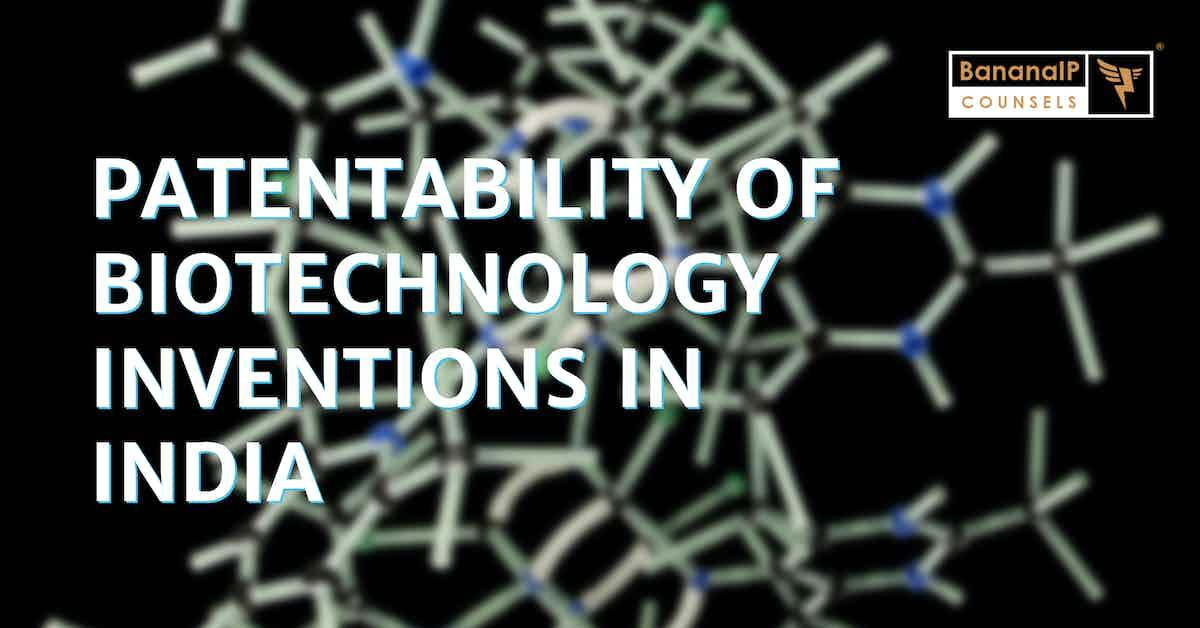This post was first published on 22nd January 2011.
Patentable Subject Matter
The scope of eligible subjects is very broad in India. Any product or process irrespective of the technology is the patentable subject matter in India. However, the Patents Act under Section provides a long list of inventions that are excluded from the patentable subject matter, which includes biotechnology inventions.
The Discovery of any living thing occurring in nature is not the patentable subject matter in India. Prohibited biotech subjects further include plants and animals in whole or any part thereof including seeds; varieties, species, and essentially biological processes for the production or propagation of plants and animals. However, microorganisms and microbiological processes are patentable subject matter. Genetically modified multicellular organisms including plants, animals, human beings, and their parts are excluded from patentability in India.
Gene sequences and DNA sequences having disclosed functions are considered patentable in India. However, human beings and embryonic stem cells are not patentable. Furthermore, methods of medical treatment are also prohibited from patentability in India.
Industrial Applicability
In India, for an invention to be industrially applicable, it is necessary to prove that the invention can be made, Can be used in at least one field of activity, and Can be reproduced with the same characteristics as many times as necessary. Since no specific mention with regard to the industrial applicability of biotechnology patents has been provided for in the act, it is reasonable to apply the general industrial applicability standards to biotechnology inventions. If biotechnology inventions can be made and used in an industry and can be reproduced as many times as required, they would satisfy the Industrial Applicability requirement in India. The guidelines for examining biotechnology inventions in the Draft Manual of Patent Practice, 2008 provide that gene sequences and DNA sequences whose functions are not disclosed do not satisfy the Industrial Applicability requirement.
Novelty
The Patents Act does not have any explicit provisions with respect to the novelty of biotechnology inventions. Since most biotechnology inventions are products of nature inherently present in living organisms, they could be construed as discoveries and not patentable. However, the Draft Manual of patent practice and procedure, 2008 provides that biological materials such as recombinant DNA, Plasmids, and processes of manufacturing thereof are patentable provided they are produced by substantive human intervention. As there are no decided cases on the subject, the interpretation of the Manual is being used to analyze the novelty of biotechnology inventions. Several patents have been granted for isolated gene sequences in India and such sequences have been considered to be novel by the patent office in the light of their natural counterparts.
Inventive Step
Due to the dearth of case law, the approach to inventive step with regard to biotechnology inventions in India is not clear. As per the 2008 Draft Manual, it can be safely concluded that isolated gene sequences and protein sequences will be considered to have an inventive step in the light of their naturally existing counterparts. Furthermore, the economic significance requirement is relatively easy to prove for biotechnology inventions due to their various applications in the drugs and diagnostics sector. Principles such as the reasonable expectation of success, predictability of the field, and so on are applied to determine inventive steps in India as well and would be applied to biotechnology inventions. However, as it stands now the law does not indicate any differing standards for biotechnology inventions when compared to other inventions.
Enablement
In India, for biotechnology inventions, which describe biological material in the specification, the law provides for the deposit of such biological materials at a recognized depository. The manual of patent practice and procedure requires the invention to be described completely in the specification to enable a person skilled in the art to be able to carry out the invention by reading the specification. However, there are no cases in India that talk about differing written descriptions or enablement standards for biotechnology inventions.
Morality
Section 3(b) of the Indian Patent Act provides that an invention the primary or intended use or commercial exploitation of which would be contrary to public order or morality or which causes serious prejudice to human, animal, or plant life or health or to the environment is not patentable. As per the section an invention would not be patentable if it is immoral or against public order, harmful to human, animal, or plant life, or harmful to the environment. The Draft Manual of Patent Procedure, 2010 provides that Any biological material and method of making the same which is capable of causing serious prejudice to human, animal, or plant lives or health or to the environment including the use of those that would be contrary to public order and morality are not patentable. It further provides that the processes for cloning human beings or animals, processes for modifying the germ line, the genetic identity of human beings or animals, uses of human or animal embryos for any purpose are not patentable as they are against public order and morality. The Indian Patent Law has strong prohibitions against patenting biotechnology inventions based on morality and public order.



